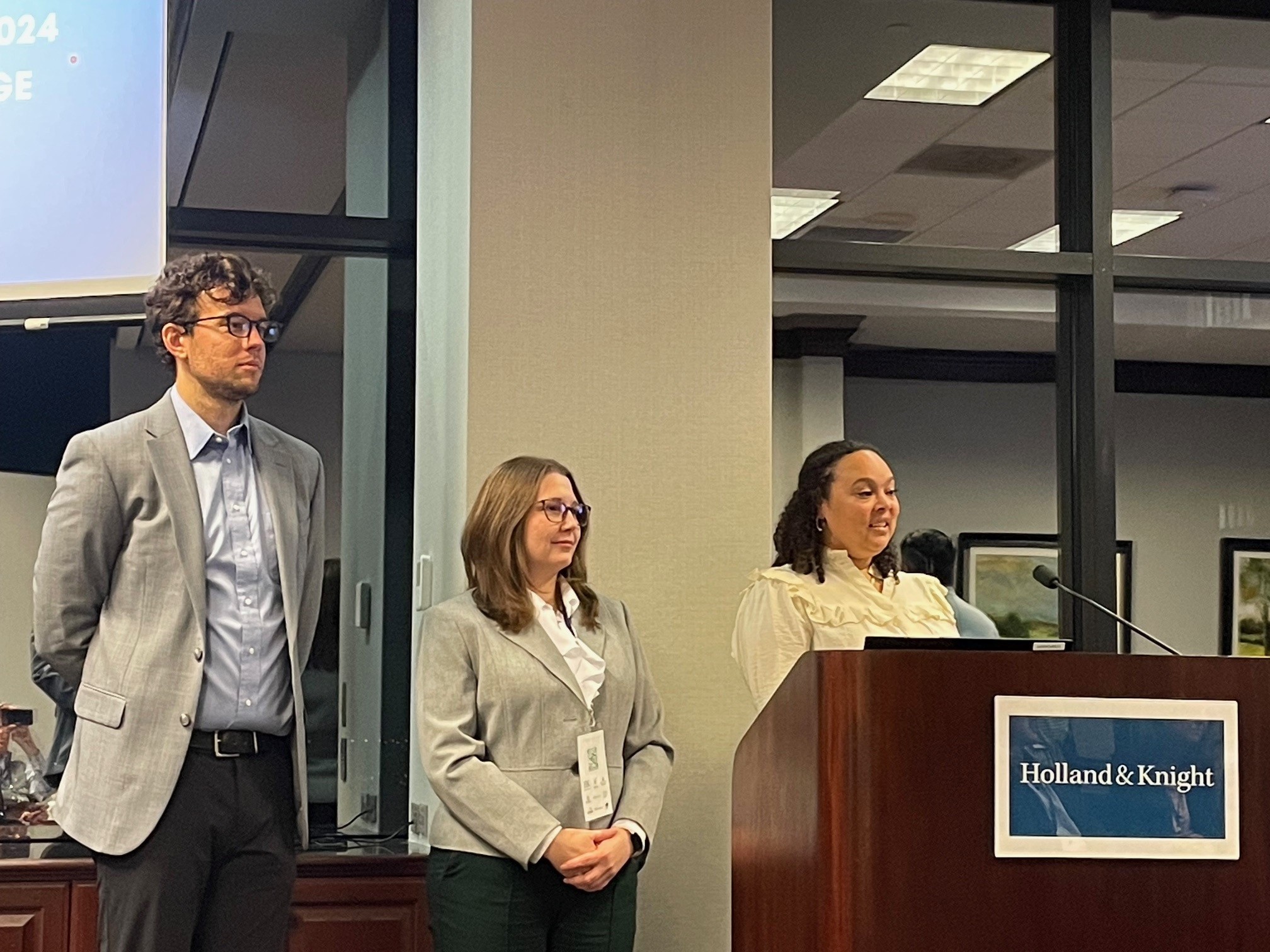
PAN Biologics wins Fall edition of the Scipreneur Challenge
It's the technology invented by Kuntal De, but with a different application.
Some 10 weeks after they began their journey, three teams of university undergraduate and graduate students, postdoctoral fellows, clinical fellows, research staff, and entrepreneurs unveiled their commercialization plans around technologies provided by the Volunteer State’s research institutions on Monday evening.
Organized by the BioTN Foundation and its Academic Alliance, the nonprofit sibling of Life Science Tennessee, the event, known as the Scipreneur Challenge, allowed the participants to get a feel for what it was like to develop a business plan for a life sciences or biotech invention. It is offered bi-annually in collaboration with the state’s leading academic and research institutions.
The event was hosted in the Nashville offices of Holland & Knight LLP, the law firm that is also sponsor of the “Venture Forum” on Tuesday that will bring the annual Life Science Tennessee conference to a conclusion.
”They (the teams) did not know these technologies existed two months ago,” Bryan Barringer, Scipreneur Program Coordinator, noted.
Judges for the event were:
- Patrick Clayton, a Vice President with J.P. Morgan in Houston, TX;
- Karrie Dudek, Director of the new Life Science Venture Program
- Olaf Schulz, Director of the ZeroTo510 program at Epicenter Memphis; and
- Jennifer Zachry, Co-Founder and Director of Business Development for Orion Therapeutics Inc.
 Two of the three teams that pitched were focused on tremors – one directly related to Parkinson’s disease and the other on what are called essential tremors. In the end, the judges selected PAN Biologics, a Knoxville-based team that was initially targeting a healthcare application but switched to nematodes for which the technology is also appropriate. That switch came after Kuntal De, the Chief Executive Officer and Founder of PAN Biologics, formed a company to develop a cutting-edge biologics solutions that target the signaling pathways for cancer therapies.
Two of the three teams that pitched were focused on tremors – one directly related to Parkinson’s disease and the other on what are called essential tremors. In the end, the judges selected PAN Biologics, a Knoxville-based team that was initially targeting a healthcare application but switched to nematodes for which the technology is also appropriate. That switch came after Kuntal De, the Chief Executive Officer and Founder of PAN Biologics, formed a company to develop a cutting-edge biologics solutions that target the signaling pathways for cancer therapies.
- First up was a three-person team focused on those dealing with Parkinson’s disease. Whether patients, physicians, or hospitals, there are 10 million people globally suffering from the disease, including one million in the U.S. The company named NeuroSense is built around an algorithm that would be used in a wearable device, saving time and money for patients, physicians, and hospitals. The main competitor is the PKG sensor.
- The final presentation was on the TremorWatch, a technology focused on what was described as a “timely, affordable, and effective treatment” for the 25 million people with what are termed essential tremors. Sam Insignanes, a member of the Research Staff at the Vanderbilt Eye Institute, pitched the “Smart Essential Tremor Stopper.” It is a University of Tennessee at Chattanooga technology, invented by Erkan Kaplanoglu.
Like what you've read?
Forward to a friend!

